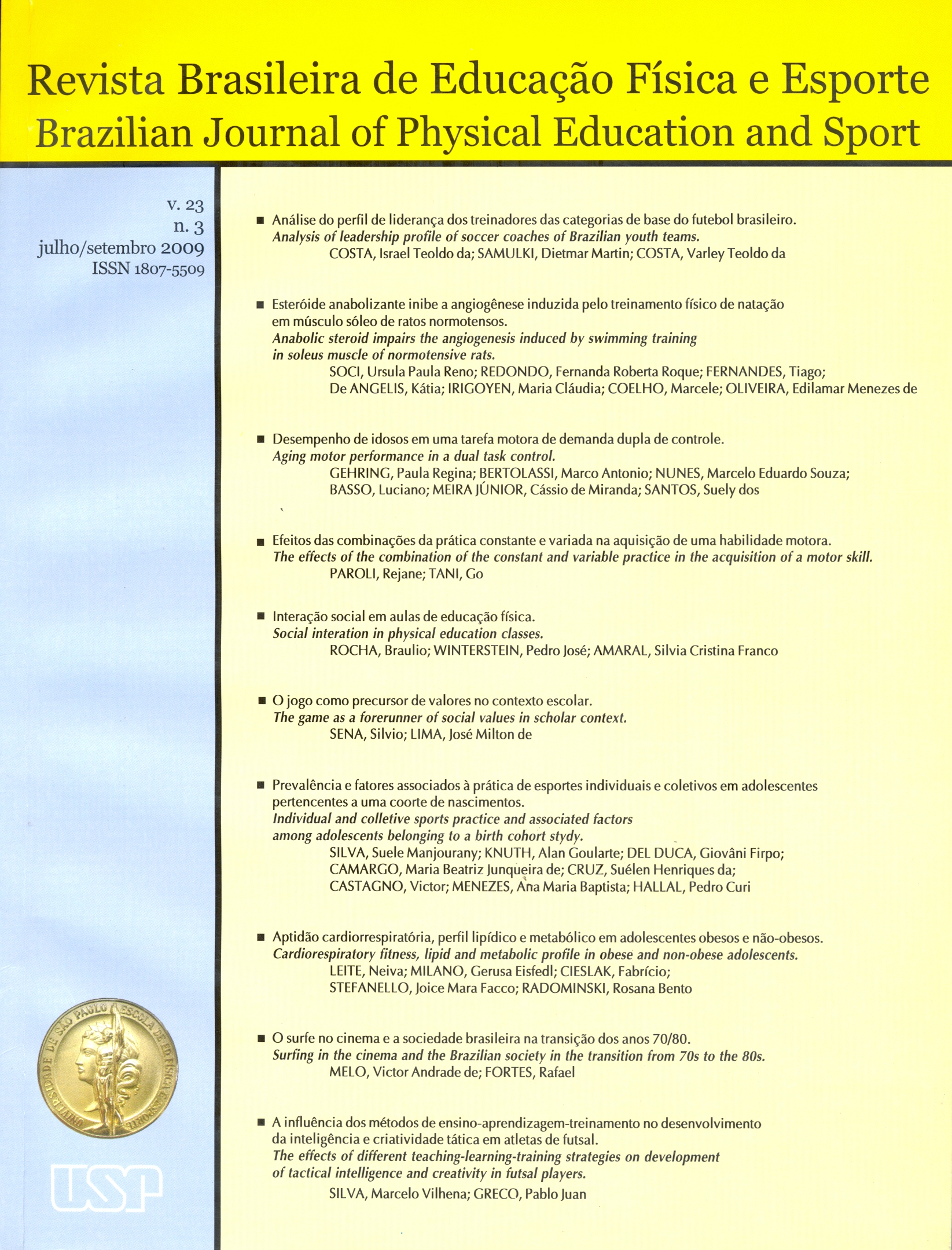The effects of different teaching-learning-training strategies on development of tactical intelligence and creativity in futsal players
DOI:
https://doi.org/10.1590/S1807-55092009000300010Keywords:
Futsal, Teaching-learning-training, Procedural tactical knowledgeAbstract
This study analyzed and described the teaching-learning-training methods employed in three futsal teams, relating them to the acquisition of procedural tactical knowledge in the manifestation of convergent (creativity) and divergent (intelligence) thoughts. Eighteen training sessions of each team were recorded and later on classified, by applying the protocol of Saad (2002), used by Moreira (2005). The KORA tests (Memmert, 2002) were conducted in order to evaluate the acquisition of tactical knowledge within each team. The results indicate the predominant use of three different teaching-learning-training methods: analytical, mixed (analytical-situational) and situational. The analytical method contributed to improvements only in game intelligence, whereas the mixed method and the situational method provided improvements in both game intelligence and creativity. This suggests that the active methods, based on tactical development, are more favorable for the acquisition of tactical and technical skills and creativity, avoiding the monotonous process of teaching the specific game techniques by continuous repetition and early specialization.Downloads
Download data is not yet available.
Downloads
Published
2009-09-01
Issue
Section
naodefinida
License
Todo o conteúdo da revista, exceto onde está identificado, está licenciado sob uma Licença Creative Commons (CC-BY)
How to Cite
Silva, M. V., & Greco, P. J. (2009). The effects of different teaching-learning-training strategies on development of tactical intelligence and creativity in futsal players . Brazilian Journal of Physical Education and Sport, 23(3), 297-307. https://doi.org/10.1590/S1807-55092009000300010


